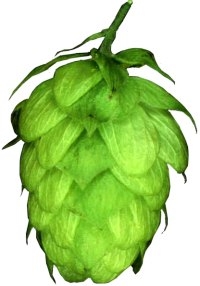Time to stand up for English hops
Added: Wednesday, October 10th 2012
The passion shown by brewers of cask and craft beers in Britain for beers that burst with exciting new hop aromas and flavours could have a downside: the death of the English hop industry. English hop growers fear their farms could disappear within a decade unless brewers start to use more home-grown varieties.
Beers from regional and craft brewers increasingly offer the exciting characteristics of hops from the United States, the Czech Republic, Germany, Poland, Slovenia and New Zealand. Earlier this year, the major national brewer, Marston’s, launched a series of monthly beers, each one using a hop from a different country. It all makes for invigorating drinking for British beer lovers, faced with the citrus, herbal, floral, pine and cedar notes created by these hops – but their use could spell the end for such revered English varieties as the Fuggle and the Golding.
The problem was highlighted in a major report in the Guardian on 9 October by the paper’s Consumer Affairs Correspondent, Rebecca Smithers. She reports that not only are traditional oast houses – where Kent hops are traditionally dried and processed – being turned into country dwellings but acres of land used for hop growing are lying idle.
At the industry’s peak in 1872, English farmers used around 72,000 acres to grow hops. But demand has now fallen so low that last year only 2,500 acres were used. Paul Corbett, managing director of major hop merchants Charles Faram, told Rebecca Smithers: “Some growers have been idling crops this year because there haven’t been enough sales and if they can’t sell the hops they pull them out. Our fear is that if demand falls any further then the infrastructure not just for growing but for picking and processing hops will disappear. If we don’t stick up for the UK hop industry now, there will be no industry in a decade’s time.”
The tragedy of this situation is that the English hop industry has been in the forefront of developing new hops, such as dwarf or hedgerow varieties that grow to half the height of conventional varieties. As a result, they are easier to pick – machines can collect two rows at a time – and are more resistant to pests and disease. The Boadicea variety, introduced around a decade ago, uses small amounts of agricultural chemicals and was meant to be an important step towards developing organic varieties. At present, most organic hops are imported from New Zealand, which make a mockery of saving on carbon footprints.
But new hop development, carried out at Wye College in Kent, came to a shuddering half when Margaret Beckett, Minister of Agriculture in the last Labour government, withdrew Wye’s funding and the college and its extensive grounds are being turned into private housing. But another great blow to the industry came much earlier, in 1984, when the Hop Marketing Board was abolished. The nationalised board controlled the supply of hops and its abolition opened the market to foreign imports.
Many brewers assume they can only have exciting aromas and flavours in their beers if they import hops from other countries. This argument is countered by Eddie Gadd, who runs the Ramsgate Brewery in Kent. He told Rebecca Smithers: “Many people don’t realise what an incredible range of flavours and aromas brewers can create by using different varieties of British hops in different ways.”
And Richard Frost, head brewer at Shepherd Neame in Faversham, in the heart of the Kent hop fields, added: “We should be careful not to let the use of foreign hops become a marketing gimmick. If British growers can provide what is required in the UK market by developing new varieties, then I can see little reason to import hops. We are hugely committed to Kentish hops. With such an abundance of great hops on our doorstep it doesn’t really make sense for us to buy hops from elsewhere.”
The decline of such a key agricultural industry would be unthinkable in other countries. French wine makers would not contemplate using imported grapes and would be barred from doing so as a result of the Appellation Contrôlée regulations that govern the making of wine. In Germany, brewers are proud of the “noble hops” grown in the Hallertau area of Bavaria, the biggest hop-growing region in the world, and do not use imported hops.
But once again in Britain we seem happy to stand back and watch a once-great industry go down the pan. From the following list of English hop varieties, there should surely be sufficient to allow brewers to fashion beers with the aromas and flavours they demand:
Admiral; Beata; Boadicea (hedgerow); Bramling Cross; Bulllion (small amounts); Cascade; Challenger; East Kent Golding; Endeavour; First Gold (hedgerow); Fuggle; Golding; Herald (hedgerow); Northdown; Phoenix (hedgerow); Pilgrim; Pilot; Progress; Sovereign; Target; Whitbread Goldings Variety









